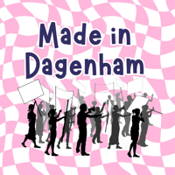
Overview
Synopsis
Based on the 2010 film of the same name, Made in Dagenham is drawn from the real-life 1968 sewing machinists strike at the Ford factory in Dagenham, Essex. This strike was influential in the passing of the Equal Pay Act of 1970. The musical focuses on the leader of the strike, Rita O’Grady, as she encourages the women of the Ford factory to walk out after they are re-classified as unskilled workers, while their male counterparts see their wages increase. After Rita is patronized and snubbed by the factory at a union meeting, the women’s grievances over their worker status turn into a fight for equal pay. Determined not to be treated like the poor relation, the women vote unanimously to strike (“Everybody Out”) and encourage the women at the Liverpool factory to strike also. However when the American bosses fly in and lay off 5,000 men as a result, including Rita’s husband Eddie,cracks begin to show in the women’s solidarity. Risking her marriage and friendships, Rita continues her efforts for equality and gives a rousing speech at a televised Trade Union Conference (“Stand Up”), leading to the passing of equal pay within the union. As Eddie finally recognizes his wife’s achievements, the women celebrate their life-changing success. Featuring a rousing score and a choice of good character roles, Made in Dagenham offers parts for all ages.
Show Information
Context
Plot
Characters
| Name | Part Size | Gender | Vocal Part |
|---|---|---|---|
|
Lead |
Male |
Baritone |
|
|
Lead |
Female |
Alto |
|
|
Supporting |
Male |
Tenor, Baritone, Bass |
|
|
Supporting |
Male |
Tenor, Baritone, Bass |
|
|
Supporting |
Male |
Tenor, Baritone, Bass |
|
|
Supporting |
Male |
Tenor, Baritone, Bass |
|
|
Supporting |
Male |
Baritone |
|
|
Supporting |
Male |
Tenor, Baritone, Bass |
|
|
Supporting |
Male |
Tenor, Baritone, Bass |
|
|
Supporting |
Male |
Baritone |
|
|
Supporting |
Male |
|
|
|
Supporting |
Female |
Alto |
|
|
Supporting |
Female |
Alto |
|
|
Supporting |
Female |
Soprano, Mezzo-Soprano, Alto |
|
|
Supporting |
Female |
Mezzo-Soprano |
|
|
Supporting |
Female |
Soprano, Mezzo-Soprano, Alto |
|
|
Supporting |
Female |
Mezzo-Soprano |
|
|
Supporting |
Female |
Soprano, Mezzo-Soprano, Alto |
|
|
Supporting |
Male |
Tenor, Baritone, Bass |
|
|
Featured |
Female |
|
Songs
Act One
- Busy Woman - Rita, Sharon, Graham, Eddie & Ensemble
- *Made in Dagenham - Ensemble
- *This Is What We Want - Sandra, Beryl, Rita, Cass, Clare & Female Ensemble
- *Union Song - Male Ensemble
- Wossname - Clare, Female Ensemble
- Always A Problem - Harold Wilson & Aides
- Busy Woman (Barbara Castle) - Barbara Castle
- *Pay Day - Ensemble
- I’m Sorry I Love You - Eddie, Rita & Male Ensemble
- School Song - Graham & Male Ensemble
- *Same Old Story - Ensemble
- Union Song (Reprise) - Ensemble
- *Everybody Out - Rita & Factory Workers
Act Two
- This is America - Mr. Tooley & Ensemble
- Storm Clouds - Lisa, Mr. Tooley, Harold Wilson, Barbara Castle & Ensemble
- *Cortina! - Cortina Man & Girls
- The Letter - Eddie
- Ideal World - Barbara Castle
- Nearly Had It All - Rita, Eddie & Female Ensemble
- Viva Eastbourne - Beryl, Sandra, Cass & Ensemble
- Stand Up - Rita, Eddie & Ensemble
A song with an asterisk (*) before the title indicates a dance number; a character listed in a song with an asterisk (*) by the character's name indicates that the character exclusively serves as a dancer in this song, which is sung by other characters.
Monologues
Scenes
Key Terms
An adaptation is a reworking of a story from one medium or cultural context into another, such as turning a novel into a play or updating a classic play’s setting. Adaptations often reinterpret themes, characters, and style for new audiences. They can range from faithful recreations to bold reimaginings.
Videos
Quizzes
Themes, Symbols & Motifs
Sorry! We do not currently have learning modules for this guide.
Quote Analysis
Sorry! We do not currently have learning modules for this guide.
